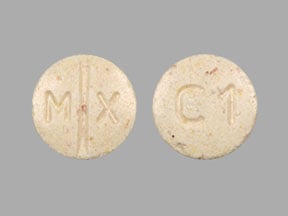
Candesartan-hydrochlorothiazide Coupons & Savings Card – Discount Prices from $69.27
Generic for: Atacand hct
My prescription
Edit
16-12.5MG, Candesartan-hydrochlorothiazide (90 Tablets)
Select pharmacy

CVS
$76.18
COUPON PRICE
Walgreens
$69.27
COUPON PRICE
Albertsons
$88.00
COUPON PRICE
Walmart
$142.15
COUPON PRICECandesartan-hydrochlorothiazide savings card
Show this card to your pharmacist
Walgreens
$69.27
BIN
ID
PCN
GRP
015995
LHKPY244203
GDC
DR33
Powered by
More prescriptions for hypertension
More prescriptions for hypertension
Price history for Atacand Hct (brand) & Candesartan-hydrochlorothiazide (generic)
90 Tablets, 16-12.5MG
Average retail price for Atacand Hct
Average retail price for Candesartan-hydrochlorothiazide
Average SaveHealth price for Candesartan-hydrochlorothiazide
Our price history data is based on aggregated prescription data collected from participating pharmacies in America. Our prescription data updates daily to reflect the latest price changes. If you notice a missing data point, it means there wasn't sufficient data available to generate a monetary value for that date.
We analyzed Candesartan-hydrochlorothiazide prices for (16-12.5MG, 90 Tablets) over the last 12 months. The average retail price was $396.90, while the average price using the SaveHealth discount card was $95.27. That's a savings of approximately 76.00% when using our Candesartan-hydrochlorothiazide coupon.
Compared to the generic version, Atacand Hct had an average price of $1321.10 over the same time period. With the SaveHealth savings card, Candesartan-hydrochlorothiazide is 92.79% cheaper on average than Atacand Hct.
*Retail prices are based on pharmacy claims data, and may not be accurate when we don't have enough claims.
Candesartan-hydrochlorothiazide dosage forms
Dosage Quantity Price from Per unit 16-12.5MG 90 Tablets $81.34 $0.90 16-12.5MG 15 Tablets $21.56 $1.44 16-12.5MG 30 Tablets $34.11 $1.14 16-12.5MG 60 Tablets $55.00 $0.92 16-12.5MG 180 Tablets $136.39 $0.76 32-25MG 5 Tablets $12.34 $2.47 32-25MG 30 Tablets $47.72 $1.59 32-25MG 34 Tablets $52.86 $1.55 32-25MG 60 Tablets $77.47 $1.29 32-25MG 90 Tablets $109.81 $1.22
| Dosage | Quantity | Price from | Per unit |
|---|---|---|---|
| 16-12.5MG | 90 Tablets | $81.34 | $0.90 |
| 16-12.5MG | 15 Tablets | $21.56 | $1.44 |
| 16-12.5MG | 30 Tablets | $34.11 | $1.14 |
| 16-12.5MG | 60 Tablets | $55.00 | $0.92 |
| 16-12.5MG | 180 Tablets | $136.39 | $0.76 |
| 32-25MG | 5 Tablets | $12.34 | $2.47 |
| 32-25MG | 30 Tablets | $47.72 | $1.59 |
| 32-25MG | 34 Tablets | $52.86 | $1.55 |
| 32-25MG | 60 Tablets | $77.47 | $1.29 |
| 32-25MG | 90 Tablets | $109.81 | $1.22 |
| 32-12.5MG | 10 Tablets | $17.29 | $1.73 |
| 32-12.5MG | 30 Tablets | $36.65 | $1.22 |
| 32-12.5MG | 45 Tablets | $45.82 | $1.02 |
| 32-12.5MG | 60 Tablets | $55.00 | $0.92 |
| 32-12.5MG | 90 Tablets | $81.34 | $0.90 |
